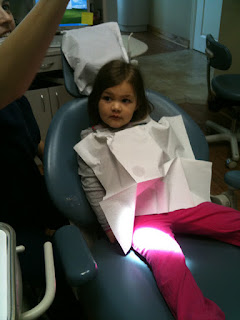Here are some strategies for relieving your dental anxiety:
Knowledge:
Knowledge is the greatest defense against anxiety, according to the Academy of General Dentistry. Make sure that before any treatments your dentist has explained your treatment options, what will be performed, and what you should expect as the patient. Research any procedures you feel uncomfortable about. Talk to friends or family members who have received similar treatments about their experience. Become familiar with the dentist office where your treatment will take place. Dental offices have changed dramatically over the years, the environment is more soothing, the technology more advanced, and most procedures can be completed quickly and painlessly.Communication:
It's very important to communicate your fears and concerns to your dentist. There may be specialized care or medications that your dentist can provide to help with your anxiety, but you won't know unless you communicate your needs. Visit a dentist you trust, one who will take the time to talk to you and understand your fears. Make sure you have an open and honest relationship and that you are on the same page. Sometimes just knowing what to expect can eliminate your fears.Breathing:
Anxiety commonly causes people to inadvertently hold their breath. This only increases the panic feeling. Focus on breathing regularly and slowly, take big breaths and pause between inhaling and exhaling.Distraction Techniques:
You may find that focusing your attention away from your dental treatment may help to avoid anxiety.You may try:
- listening to music, or watching a movie or TV
- concentrating on relaxing your body and breathing
- thinking about something that gives you pleasure (ie. playing baseball, relaxing on the beach).
Diet:
- Making some minor changes to your diet before visiting the dentist can help with your anxiety. Try to avoid caffeine and stay away from sugary foods. Eat high-protein foods and drink plenty of water.
 I was very nervous when my sister-in-law scheduled an appointment for my 3 year old niece to come see me for the first time. I am very close to my niece, but to her I have always been Aunt Abby and not Dr. Mann. I'm comfortable seeing children at this age, but I know that visiting the dentist can be a very scary thing for them, and I didn't want her have a bad experience and associate it with me. I could just imagine Molly crying inconsolably the next time I visit her at her house because she thinks Dr. Mann is there to stick something into her mouth again.
I was very nervous when my sister-in-law scheduled an appointment for my 3 year old niece to come see me for the first time. I am very close to my niece, but to her I have always been Aunt Abby and not Dr. Mann. I'm comfortable seeing children at this age, but I know that visiting the dentist can be a very scary thing for them, and I didn't want her have a bad experience and associate it with me. I could just imagine Molly crying inconsolably the next time I visit her at her house because she thinks Dr. Mann is there to stick something into her mouth again.